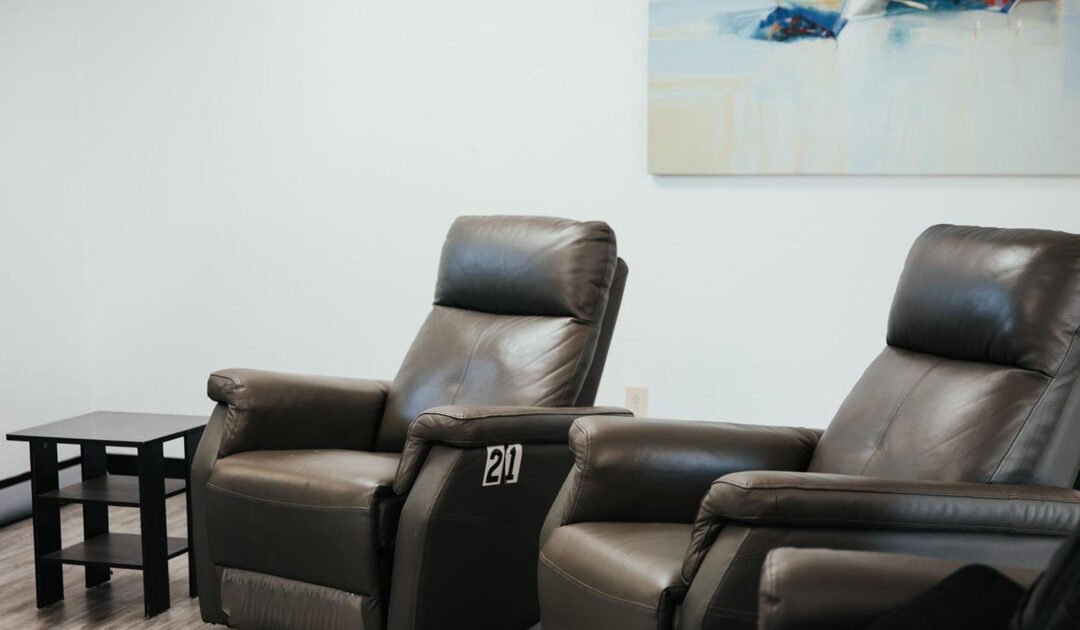The path from substance use disorder to recovery is filled with unique challenges. Aside from medical assistance and pharmacotherapy, one of the most powerful tools in long-term recovery is the support of loved ones. As a family member, the role you play in supporting someone in recovery is pivotal.
The dynamics of familiar involvement in recovery can seem overwhelming. Many people – family members and patients included – feel mentally, emotionally, and physically exhausted by the time they reach the recovery process. Remember that your loved one is battling a disease and not a choice, and how valuable it is to create a supportive community as they recover.
The Impact of Family Support on Recovery
The detox and long-term recovery process is filled with ups and downs, both physical and mental. The presence of a supportive family environment can significantly impact recovery, including:
- Reduced rates of relapse
- Better rates of successful recovery
- Less time in the hospital
- Better mental health
- Decreased rates of incarceration
At Axiom Care, we recognize the benefits of a supportive and hopeful community and encourage all patients’ families to build upon their healing and personal growth. What does this look like?
Emotional Support
Emotional encouragement can have a significant impact on your loved one’s mindset during recovery. Knowing that someone believes in them and their ability to overcome substance use disorder can lift their spirits and give them the strength they face the challenges that come.
Emotional support looks like:
“I believe in you and your strength to overcome this challenge.”
“I’m here to listen whenever you need to talk, without judgment.”
“You’re doing great, and I’m proud of your progress.”
Emotional support does not look like:
“It’s not that big of a deal, you’ll get over it.”
“Why can’t you just handle this on your own?”
“You should be further along by now, why are you still struggling?”
Motivational Factor
Providing motivation is profoundly important to inspiring your loved ones through the toughest moments. Motivation is an important part of the long-term recovery journey. Belief and faith of family members and friends fuels the motivation to stay sober.
Motivation looks like:
“I see how hard you’re working, and I’m impressed by your dedication.”
“Keep going, you’ve already come so far and I know you can keep going.”
“You inspire me with your resilience and determination.”
Motivation does not look like:
“If you loved me, you wouldn’t relapse.”
“You should be ashamed of yourself for slipping up again.”
“Why can’t you just get better already? You’re letting everyone down.”
Strengthening Relationships
Through open communication, mutual support, and shared experiences, you can forge a deeper connection built on trust and understanding. Axiom Care offers resources to loved ones to support your relationships with loved ones. Reach out to us with any questions, or just to find support yourself.
Strengthening relationships looks like:
“Let’s talk about how we can support each other through this journey.”
“I value our time together, and I’m grateful for the opportunity to strengthen our bond.”
“I understand that this is difficult for both of us, and I’m committed to working through it together.”
Strengthening relationships does not look like:
“You’re the reason our family is falling apart.”
“I can’t believe you’re still struggling with this after everything we’ve been through.”
“I’m not going to trust you until you prove you’re worthy of it.”
Understanding Substance Use as a Family Matter
Substance use affects the entire family. Accepting the collective impact on the entire family is one of the first steps in creating an environment to support long-term recovery. Open, honest conversations are important to dispel myths and reduce stigma about substance use disorder. Keep educating yourself and your family members, understanding that addiction is a medical condition.
What addiction is:
- A complex medical condition involving compulsive drug seeking and use despite harmful consequences.
- Often accompanied by changes in the brain’s structure and function, affecting decision-making, impulse control, and judgment.
- Can impact the individual’s physical health, mental well-being, relationships, and overall quality of life.
- Requires comprehensive treatment involving medical intervention, therapy, and support to address underlying issues and promote recovery.
What addiction is not:
- A moral failing or character flaw.
- Simply a lack of willpower or self-control.
- Easily overcome by sheer determination or discipline alone.
- Limited to specific substances or behaviors; addiction can manifest in various forms beyond drugs or alcohol.
Boundaries
Having a loved one in recovery is extremely emotionally strenuous. We acknowledge that supporting someone in addiction recovery is easier said than done, and there may come a time when you feel the need to establish boundaries for your own well-being. While coming to the decision of prioritize your own health can feel difficult, here’s what you should consider:
What not to do or say when setting boundaries:
- Don’t resort to blaming or shaming language, as this can intensify feelings of guilt or inadequacy in your loved one as they find the strength to recover.
- Avoid making ultimatums or issuing threats, as this can escalate tensions and create further strain on the relationship.
- Refrain from engaging in arguments or confrontations when emotions are running high, as this can lead to more conflict and negativity.
What you can say when setting boundaries:
- “I need to take some time for myself right now and focus on my own well-being.”
- “I care about you deeply, but I need to establish some boundaries for my own mental health.”
- “I hope you understand that my decision to step back is not a reflection of how much I love you, but rather a necessary step for my own healing.”
Coping with Challenges as a Family
Navigating Relapses
While it can feel like the world is crashing down, know that relapse is a common part of recovery. 90% of individuals in recovery relapse at least once. For those in recovery, relapsing can cause feelings of guilt and shame. It may take away confidence and hope to maintain sobriety. Know that relapsing doesn’t mean it’s the end of the road for your loved one. It’s a detour and may strain your relationship with your loved one, but it’s important to remain patient and encouraging.
Financial Insecurity
Financial strain is common for someone in recovery as they rebuild their lives after substance use. This can exacerbate the feelings of stress and anxiety that you and your loved ones are most likely already experiencing. Research financial resources and continue to support your loved one’s progress as they find a job, housing, or therapy.
Returning Home
Returning to a home where substance use occurred, and often without the rigid routine of a rehabilitation center can evoke powerful triggers. Being in that same environment can reignite the urge to use again and can seem threatening to recovery. Understand that your loved one may feel uncomfortable, vulnerable, and unstable as they return home and use proper coping mechanisms to navigate this time.
How Axiom Care Involves Family Members Through Recovery
Inclusive Care Model
We recognize the role that you play in the recovery process, and that is why we embrace an inclusive care model. This looks like:
- Family therapy sessions
- Family participation in treatment planning
- Family support groups
Family Education Sessions
Axiom Care offers educational resources and support sessions for families, empowering them with the knowledge and tools to support their loved ones on their recovery journey. This looks like:
- Understanding Substance Use Disorder workshops
- Communication skills training
- Boundary setting workshops
Post-Recovery Support
We are committed to long-term care beyond when a patient leaves our facility. You and your loved ones deserve access to resources and guidance for your well-being, even years after being at Axiom Care. This looks like:
- Family support groups (such as Al-Anon)
- Continuing education resources
- Individualized counseling services
Conclusion
Family support is one of the most important aspects of successful long-term recovery as you provide your loved one with strength, motivation, and encouragement to navigate their second chance. At Axiom Care, our mission is to stand alongside individuals and their loved ones, offering support and guidance throughout their recovery. Together, we can overcome the challenges of addiction and build brighter, healthier futures. Reach out today and ask about or detox and residential treatment programs.





